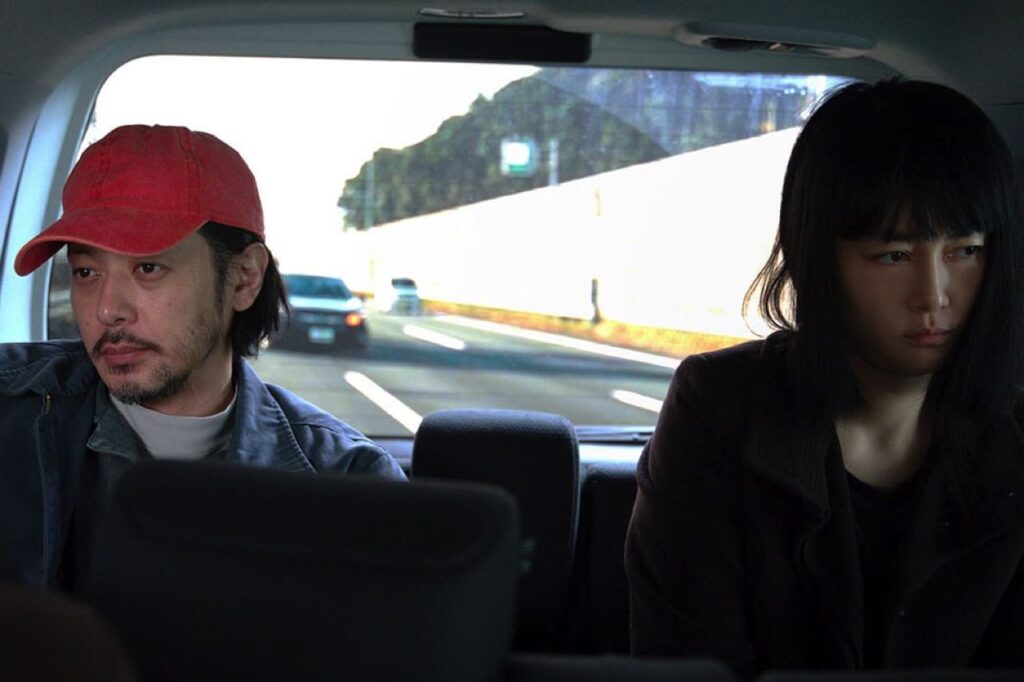by Brian Hioe
語言:
English
Photo Courtesy of Culture Entertainment
This is a No Man is an Island film review written in collaboration with Cinema Escapist. Keep an eye out for more!
JAPANESE INDEPENDENT FILM YOKO is a character study of its titular protagonist, an emotionally desolate unmarried woman who works a dead-end customer support job. Yoko is roused from her isolation by the death of her father, whom she has not visited in twenty years.
While heading to her father’s funeral, Yoko gets separated from her cousin and his family, who she originally intends to travel with. Her phone broken and without money to even pay for a call, Yoko decides to hitchhike her way to the funeral—and experiences a series of strange, sometimes surreal encounters with strangers en route.
Given Yoko’s relative emotional placidity, the film’s development mostly comes from Yoko’s interactions with more the dynamic characters she encounters while hitchhiking—whether fellow hitchhikers, drivers, or otherwise. As such, Yoko the movie depends on such characters forcing interactions from Yoko the purported protagonist, who is otherwise reluctant to speak about herself. This works for the most part, since the characters who give Yoko rides are generally well-realized and three-dimensional in their own right; Only an encounter with a friendly elderly couple near the end of the movie proves somewhat lifeless, in that this couple seems to have no real distinctiveness as characters. Conversely, the strongest character that Yoko encounters is an author who is visiting sites affected by the 311 Tohoku earthquake and tsunami for an article revisiting the resilience of the disaster’s survivors.

Photo courtesy of Culture Entertainment
Another one of Yoko’s strengths is its evocation of the drab and indistinct areas between where cars, bus, trains, or other means of transportation stop. These are, for the most part, the rest stops where Yoko finds herself caught between begging drivers for rides or waiting, mostly in the desolate night, for cars to pass by.
The film does not aim to make these rest stops particularly evocative–which is, in many ways, precisely the point. At the same time, the bleakness of these liminal spaces serves as a metaphor for Yoko’s emotional state–showing how Yoko has not emotionally transitioned beyond her youth, and has failed to achieve the dreams that she went against the wishes of her parents to pursue.
Apart from the many well-realized scenes of bleak concrete rest stops, some of the movie’s other metaphors do not fully work out. For example, Yoko begins the movie literally haunted by the specter of her father, who despite having recently passed away, appears as a physical entity that follows her around. However, the movie curiously does not delve into Yoko’s relationship with her father beyond a cursory degree. This is part of what makes the emotional climax of the film ultimately a bit trite. As a result, Yoko herself is perhaps not as well-realized as she could be.
Despite its flaws, Yoko works well enough. Still, one is left wanting a stronger film, if only for the unrealized possibilities.



